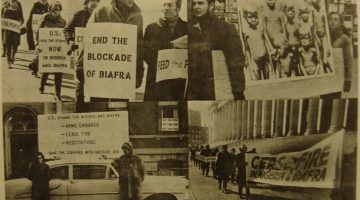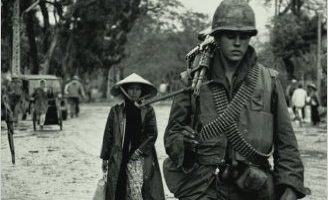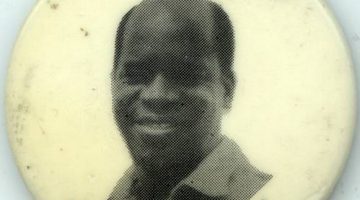The Future of Cuba-Texas Relations

By Jonathan C. Brown Jonathan Brown teaches courses on the history of Latin American revolutions. He is now completing a manuscript on “How the Cuban Revolution Changed the World.” Professor Brown took the first of his four trips to Cuba in 2006. On the very day that the government announced President Fidel Castro’s incapacitating illness […]
International History and the Global United States: More to Read
The Global United States

Charting the rise of the United States from a peripheral, comparatively weak power in the late nineteenth century to the pinnacle of its military, diplomatic, and cultural influence in the early twenty-first. How and why did this momentous transformation occur? Who resisted and why? What were the attitudes of foreign nations as the United States became a great power of the first order and then surpassed them all?
The Revolution will televise football
Why We Don’t Go to the Moon Anymore: The Space Program and the Challenge to Scientific Thinking

by Matthew Tribbe This month marks the forty-fifth anniversary of the Apollo 11 moon landing. To understand Apollo’s place in history, it might be helpful to go back forty-four rather than forty-five years, to the very first anniversary of the event in 1970. That July, several newspapers conducted informal surveys that revealed large majorities of […]
#BringBackOurGirls: A History of Humanitarian Intervention in Nigeria

by Brian McNeil #BringBackOurGirls has become ubiquitous on the internet, with a wide gamut of politicians and celebrities taking up the cause of the nearly 300 Nigerian schoolgirls kidnapped by the terrorist organization Boko Haram. While the efficacy of this sort of hashtag activism, or slacktivism, has been questioned by scholars—and openly mocked by some […]
Omens of Adversity: Tragedy, Time, Memory, Justice, by David Scott (2014)

by Lauren Hammond On October 19, 1983, members of Grenada’s People’s Revolutionary Army assassinated Prime Minister Maurice Bishop of Grenada and seven of his associates, triggering the sequence of events that led to the sudden end of the Grenada Revolution. With the prime minister dead, the hastily established ruling military council unsuccessfully attempted to restore […]
Reagan on War: A Reappraisal of the Weinberger Doctrine, 1980-1984, by Gail E. S. Yoshitani (2012)

Hailed as a pioneer of conservatism by some and reviled as an enemy of the middle class and a supporter of dictators by others, Reagan’s legacy has largely been shaped by debate between partisan pundits. Gradually, however, a limited body of more moderate of “Reagan revisionism” has begun to emerge.
Persuasion, Propaganda, and Radio Free Europe: The New Archive (No. 9)

By Charley S. Binkow How does a nation fight a war of ideas? When the battlefield is popular opinion, how does a state arm itself? In 1949, the United States found its answer. Their weapon: the airwaves. The CIA launched Radio Free Europe in 1949 with the hopes of encouraging Eastern Europeans to defect from […]


